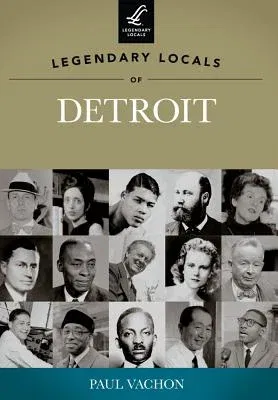Paul Vachon
(Author)Legendary Locals of Detroit, MichiganPaperback, 13 May 2013

Qty
1
Turbo
Ships in 2 - 3 days
In Stock
Free Delivery
Cash on Delivery
15 Days
Free Returns
Secure Checkout

Part of Series
Legendary Locals
Print Length
128 pages
Language
English
Publisher
Legendary Locals
Date Published
13 May 2013
ISBN-10
1467100420
ISBN-13
9781467100427
Description
Product Details
Author:
Book Format:
Paperback
Country of Origin:
US
Date Published:
13 May 2013
Dimensions:
23.47 x
16.76 x
0.97 cm
Genre:
Midwest
ISBN-10:
1467100420
ISBN-13:
9781467100427
Language:
English
Pages:
128
Publisher:
Series:
Weight:
381.02 gm